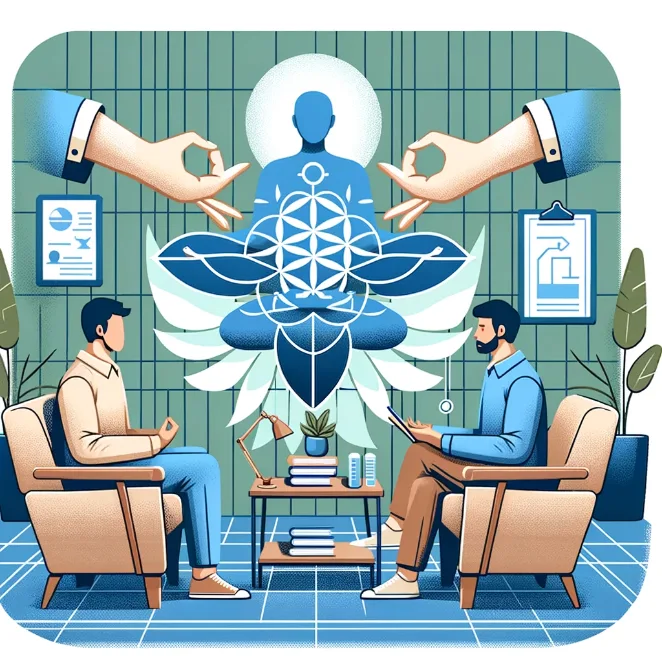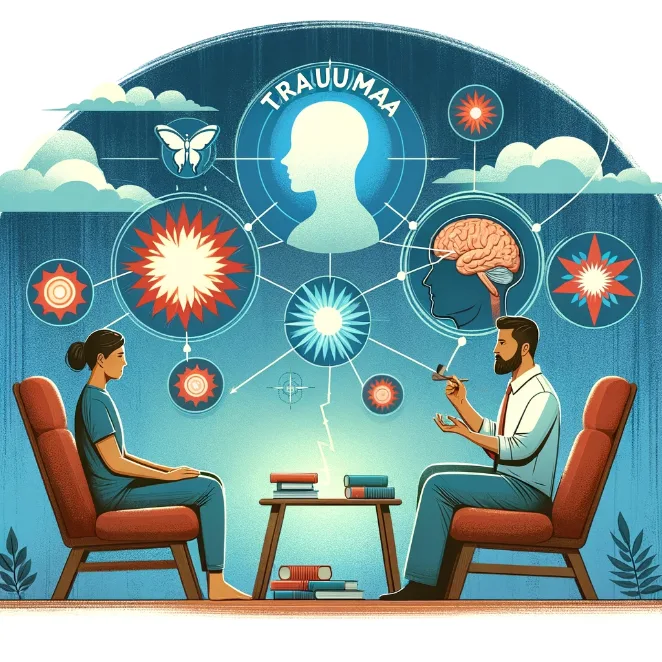
Meditation & Psychotherapy
In recent years, there has been a growing recognition of the profound synergy between meditation and psychotherapy in promoting mental health and well-being. These two disciplines, while distinct in their approaches, share a common goal: to alleviate suffering and enhance the human experience. In this article, we will explore the intersection of meditation and psychotherapy, examining how their integration can offer transformative benefits for individuals seeking personal growth, healing, and self-discovery.
article by Hina Kurosawa
Meditation as a Complement to Psychotherapy
Meditation, rooted in ancient contemplative traditions, offers a range of practices that cultivate mindfulness, self-awareness, and emotional regulation. These practices can be seamlessly integrated into psychotherapy sessions to enhance the therapeutic process. For instance, mindfulness meditation can help clients develop the ability to observe their thoughts and emotions without judgment, providing valuable insights into their psychological patterns and reactions. This self-awareness can be a catalyst for change and healing in the therapeutic context.
Moreover, meditation techniques can aid in relaxation, reducing the physical symptoms of stress and anxiety. Integrating meditation into psychotherapy sessions can help individuals feel more comfortable and open to the therapeutic process. When a client is in a relaxed state, they may find it easier to discuss difficult or painful emotions, contributing to more effective therapy.

Psychotherapy as a Framework for Integration
Psychotherapy, on the other hand, provides a structured and supportive framework for individuals to explore their inner world, address emotional challenges, and work towards personal growth. By incorporating meditation techniques, therapists can empower clients to take an active role in their healing journey. Cognitive-behavioral therapy (CBT), dialectical behavior therapy (DBT), and other evidence-based therapies often incorporate mindfulness and meditation practices to enhance their effectiveness.
For example, CBT therapists may use mindfulness to help clients identify automatic negative thought patterns. This awareness can be a crucial first step in challenging and reframing those thoughts. Similarly, DBT often incorporates mindfulness exercises to help individuals with emotional regulation and distress tolerance. These skills provide practical tools for managing intense emotions.

Addressing Anxiety & Depression
Anxiety and depression are among the most prevalent mental health conditions globally. The combination of meditation and psychotherapy has shown remarkable promise in alleviating symptoms and improving the overall well-being of individuals dealing with these challenges. Mindfulness-based cognitive therapy (MBCT), for instance, blends cognitive therapy with mindfulness meditation to prevent the recurrence of depressive episodes. Similarly, mindfulness-based stress reduction (MBSR) has been effective in reducing symptoms of anxiety and enhancing stress resilience.
In MBCT, individuals with a history of depression learn to recognize early signs of relapse and develop skills to prevent a full-blown depressive episode. Mindfulness practices help them become more aware of their thoughts and emotions, allowing them to disengage from rumination and self-criticism. This intervention equips individuals with a greater sense of control over their mental well-being.

Trauma-Informed Care
For individuals who have experienced trauma, the integration of meditation and psychotherapy can be particularly transformative. Trauma-informed therapies, such as Eye Movement Desensitization and Reprocessing (EMDR), often incorporate mindfulness practices to help clients process traumatic memories and promote emotional healing. These holistic approaches acknowledge the mind-body connection and emphasize self-regulation and grounding techniques.
In EMDR therapy, clients engage in guided bilateral eye movements while focusing on distressing memories. This process is enhanced when clients have a strong foundation in mindfulness, which allows them to stay present and grounded during intense emotional experiences. The combination of EMDR and mindfulness can lead to profound healing and resolution of traumatic memories.
In EMDR therapy, clients engage in guided bilateral eye movements while focusing on distressing memories. This process is enhanced when clients have a strong foundation in mindfulness, which allows them to stay present and grounded during intense emotional experiences. The combination of EMDR and mindfulness can lead to profound healing and resolution of traumatic memories.

Enhancing Self-Compassion and Resilience
Both meditation and psychotherapy emphasize the importance of self-compassion and resilience-building. The practices of loving-kindness meditation and self-compassion meditation, for example, can be integrated into therapy to help clients cultivate self-acceptance and emotional resilience. This, in turn, fosters a healthier self-concept and more adaptive coping mechanisms.
Loving-kindness meditation involves directing feelings of love and compassion toward oneself and others. In therapy, this practice can be instrumental in helping clients develop a more compassionate inner dialogue, counteracting self-criticism and self-judgment. This shift in self-perception can have a profound impact on one's mental well-being and relationships.
The intersection of meditation and psychotherapy represents a powerful and holistic approach to mental health and well-being. By harnessing the transformative potential of mindfulness, self-awareness, and emotional regulation, individuals can embark on a journey of self-discovery, healing, and personal growth. As the field of mental health continues to evolve, the integration of these two disciplines offers hope and healing to those seeking a more profound connection with themselves and the world around them.
Published: 11/30/2023
Modified: 11/30/2023
More predictions
Come back here soon to learn more about yourself and your future


Meditation For Sleep
In today's fast-paced world, the struggle with insomnia is increasingly common. The inability to fall asleep or stay asleep can take a toll on one's physical and mental well-being. While there are various remedies available, meditation offers a holistic and effective approach to address the root causes of sleeplessness. In this article, we will explore meditation techniques tailored specifically for insomnia and how they can help you achieve a restful night's sleep.


The Origins of Sufi Whirling
Sufi Whirling, also known as "Sema" or "Sufi dance," has its origins deeply rooted in the 13th century, in the heart of Turkey. It was during this time that the legendary poet and mystic Jalaluddin Rumi founded the Mevlevi Order of Sufism. Rumi's profound spiritual teachings and poetry continue to inspire people worldwide, but his impact on Sufi Whirling is particularly significant. Rumi's followers, known as the Whirling Dervishes, embraced this mesmerizing practice as a means of connecting with the divine and seeking spiritual enlightenment.


Using Mala Beads For Meditation
Meditation is a powerful practice that brings peace and mindfulness into our lives. Many meditation techniques incorporate tools to aid in concentration and focus, and one such tool is the Mala beads. These beaded necklaces, often associated with spiritual traditions like Buddhism and Hinduism, serve as both practical and symbolic aids in meditation. In this expanded article, we will delve deeper into the world of using Mala beads for meditation, understanding their significance, how to choose the right Mala beads, and how they can enhance your meditation practice.